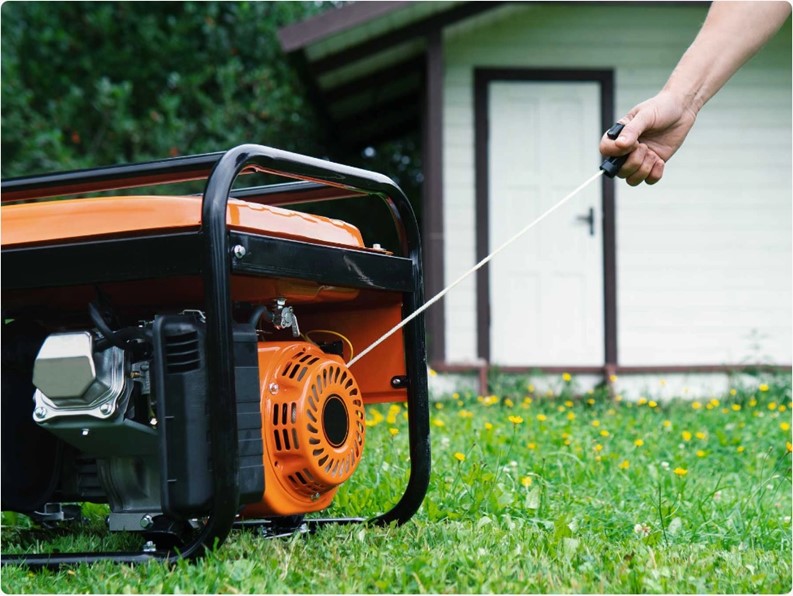Tips for Choosing the Right Diesel Generator for Your Needs

A diesel generator can be a lifesaver in times of power outages or when you need a reliable source of electricity for your home, business, or industrial operations. With the wide variety of diesel generators available in the market, it can be quite challenging to pick the right one that suits your needs. In this article, we will provide you with essential tips to help you choose the right diesel generator for your specific requirements. We will discuss factors such as power output, fuel efficiency, noise level, maintenance, portability, price, size, warranty, and automatic transfer switch, among others.
Understand Your Power Requirements
The first step in choosing the right diesel generator is understanding your power requirements. You need to know the total wattage of all the appliances and equipment you plan to use with the generator. This will help you determine the power output you need from the generator. It is essential to choose a generator with a power output higher than your total power requirements to avoid overloading the generator.
You also need to decide whether you need a single-phase or three-phase generator. Single-phase generators are suitable for residential and small commercial applications, while three-phase generators are ideal for industrial and large commercial operations.
Determine the Type of Generator You Need
There are three main types of diesel generators: standby generators, prime power generators, and continuous power generators. Standby generators are designed to provide backup power during power outages and are not meant for continuous use. Prime power generators can be used as the primary source of power and can operate continuously, while continuous power generators are designed to provide power non-stop for extended periods.
Your choice of generator type will depend on your intended use. If you need a generator for occasional use during power outages, a standby generator would be suitable. However, if you need a generator to power your operations continuously, you should opt for a prime power or continuous power generator.
Consider Fuel Efficiency and Runtime
Fuel efficiency is a crucial factor to consider when choosing a diesel generator. A fuel-efficient generator will consume less fuel, saving you money on fuel costs. To determine the fuel efficiency of a generator, you can look at its fuel consumption rate and fuel tank capacity. A generator with a lower fuel consumption rate and a larger fuel tank capacity will have a longer runtime, allowing you to use the generator for extended periods without refuelling.
Evaluate Noise Level and Environmental Impact
Noise level is an essential factor to consider, especially if you plan to use the generator in a residential area or near noise-sensitive areas. Diesel generators can be quite noisy, so it is crucial to choose one with a low noise level. Many generators come with soundproof enclosures or mufflers to reduce noise levels.
In addition to noise, you should also consider the environmental impact of the generator. Diesel generators emit exhaust gases, so it is essential to choose a generator with low emissions to minimize air pollution.
Inspect Portability and Size
Depending on your needs, you may require a portable diesel generator or a stationary one. Portable generators are easy to transport and can be moved from one location to another, while stationary generators are installed permanently and require a fixed location. Consider the size of the generator as well. A smaller generator may be more portable but may not provide enough power for your needs, while a larger generator may offer more power but be more challenging to transport and install.
Assess Maintenance and Warranty
Regular maintenance is crucial for the smooth operation of a diesel generator. Choose a generator that is easy to maintain and comes with a comprehensive maintenance schedule. Additionally, consider the warranty offered by the manufacturer. A longer warranty period indicates the manufacturer’s confidence in the quality and durability of the generator.
Compare Prices and Brands
Price is a significant factor to consider when choosing a diesel generator. However, it should not be the only factor. Compare the prices of different generators with similar specifications and choose one that offers the best value for money. Additionally, consider the reputation of the generator brand. Opt for a well-known and reputable brand to ensure the quality and reliability of the generator.
Look for Additional Features
Some diesel generators come with additional features that can make them more convenient and user-friendly. For example, an automatic transfer switch (ATS) enables the generator to start automatically when the power goes out and shut down when the power is restored. Other features to consider include remote monitoring and control, voltage regulation, and multiple power outlets.
Conclusion
Choosing the right diesel generator for your needs requires careful consideration of various factors, such as power output, fuel efficiency, noise level, maintenance, portability, price, size, warranty, and additional features. By taking the time to understand your power requirements and researching the different types of diesel generators available, you can find the perfect generator to meet your needs and provide reliable power when you need it most.